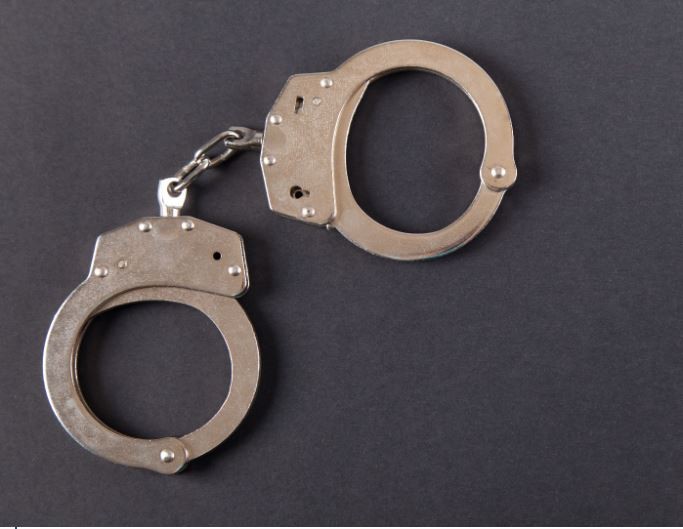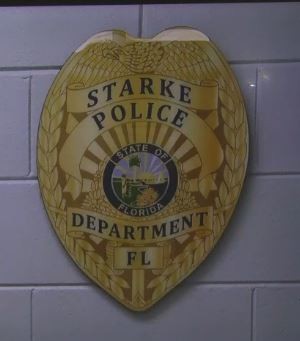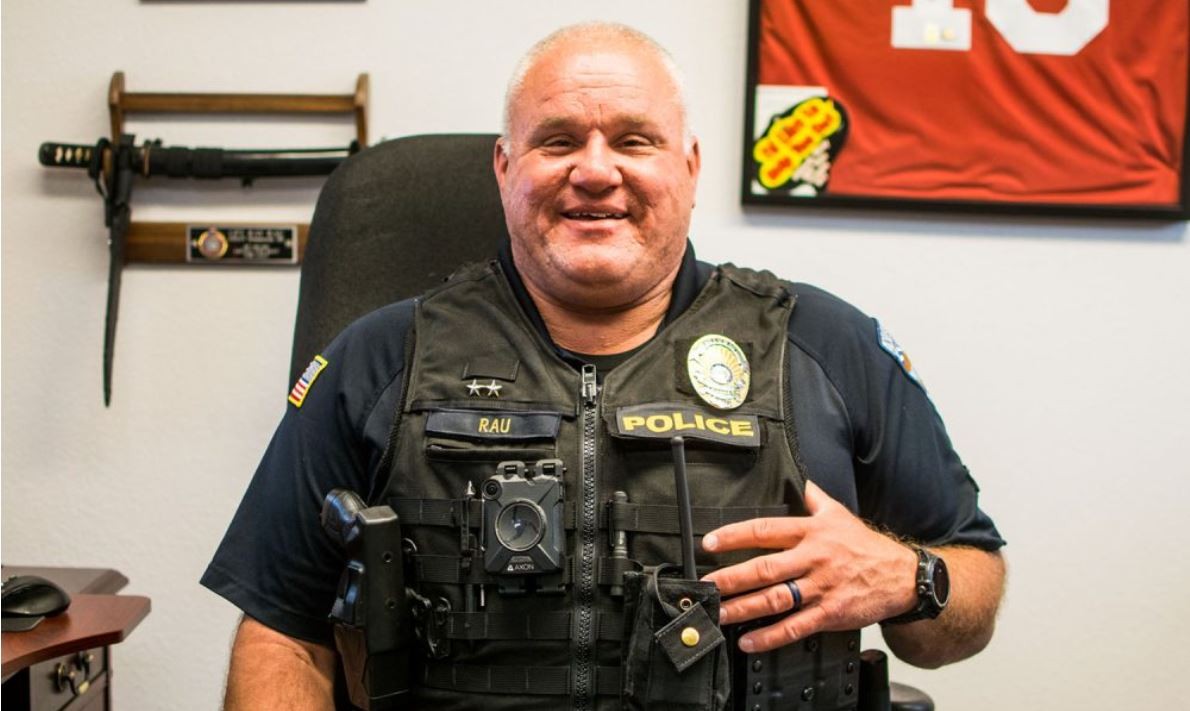Selling Seized Firearms
The Los Angeles Times www.latimes.com
By Nicholas Riccardi -
Colorado Springs, CO
The City Council is considering a program to let the Police Department sell confiscated guns to licensed dealers. Sales could net $10,000 a year.
This conservative city is taking an unusual, some might say extreme, step to try to stem its fiscal woes: It's entering the gun business.
The Colorado Springs City Council is expected in coming weeks to approve the final details of a program that would allow the Police Department to sell confiscated firearms to federally licensed gun dealers. Police have already stopped melting down the hundreds of guns they collect from crime scenes, drug houses or civilians who don't need them anymore.
The sales are projected to bring in about $10,000 a year, only a slight dent for a city that faced a deficit of one-quarter its $200-million annual budget this year. But it still helps, said Vice Mayor Larry Small, who proposed the gun sales.
"Every penny counts," Small said.
Colorado Springs is home to the Army's Ft. Carson, the Air Force Academy and NORAD. Men and women in uniform mingle easily with civilians in the shopping centers and strollable downtown that sits in the shadow of 14,000-foot Pikes Peak. People here are comfortable around firearms.
But even in Colorado Springs, the idea of law enforcement as gun sellers has raised some eyebrows.
The Police Department objected, only to be overruled by the council, which in February voted 8 to 1 to direct the department to draw up the program it will consider this month. Lt. David Whitlock said the Police Department has been moving cautiously to address the many concerns the sales raise.
"There's all kinds of ancillary issues, one of which is the politics of being in the gun-selling business," Whitlock said. "The other is not introducing another weapon into the community."
Jan Martin, the lone council member who voted against the sales, said the small amount of money they could bring in is outweighed by the risk that a gun sold by the city could one day be used for a crime.
"I remember what some of those weapons were used for," Martin said. "Just the idea of putting those weapons back on the street is unconscionable."
The International Assn. of Chiefs of Police cautions against law enforcement agencies selling weapons they have seized. Destroying the firearms, it says, is a better policy. No one tracks the number of agencies that make sales, but officials believe it to be very small.
Nonetheless, Scott Knight, who helped formulate the association's policy on gun sales, said, "We understand, particularly in this economy, that some departments need to recoup budget losses."
Knight's police department, in Chaska, Minn., about 20 miles southwest of Minneapolis, is one such agency. The department upgraded its rifles recently and the only way to pay for the guns was to sell the old ones to licensed firearms dealers.
"I certainly was not willing to turn those over to the public," Knight said.
In El Paso County, which includes Colorado Springs, Sheriff Terry Maketa's agency has been selling confiscated firearms to licensed dealers since 2006. Spokeswoman Lt. Laurie Sevine noted that most weapons used in crimes are not for sale because they are kept as evidence, sometimes for decades.
Sevine stressed that licensed dealers can only sell to people who can legally own firearms. "We're not selling to any civilian off the streets," she said. "We're very cautious as to how we go about this."
The sheriff's program, which has netted nearly $30,000 in two auctions, is what inspired Small to propose that Colorado Springs police start selling their seized weapons. He shrugged off complaints about guns possibly ending up on the streets, noting that police have long sold other assets seized from criminals.
"We auction off cars. It seems to me there's not that much difference between a firearm and a vehicle," Small said. "We've got a number of homes we've seized. . . . We don't send a bulldozer over to them."
Small said he thinks residents are comfortable with the idea because he's gotten only a handful of e-mail complaints.
Colorado Springs, population 375,000, has always been more cosmopolitan and diverse than stereotypes of the mountainous West.
Yes, the evangelical group Focus on the Family has a sign on the interstate advertising the organization's visitors center. One of the many commercial thoroughfares that wind through the subdivisions is called Corporate Drive. But the city's core is full of vintage clothing shops, music stores and an old-fashioned movie theater that last week was showing "Food Inc."
Nonetheless, several residents were rather blase about the possibility of their police selling guns.
"If it's going to generate money for the Police Department or the city, that's a good thing," said Joe Nason, 28, a six-year Army veteran taking a break from working on a construction project downtown. "People can get weapons anyway. I don't think [the sales] would have an effect on crime or more weapons."
Ty Lewis, 43, a floor installer reclining in square-block Acacia Park, also had no worries. "I don't think it's that much of a risk," he said. "Criminals are going to get their guns illegally."
But Susan Jones, an elementary school teacher, had other ideas. "I'm totally against it," she said. "I don't want to have as many guns out there as there already are."
Her husband, David, also a teacher, was pushing a pink stroller holding their 11-month-old daughter, Katelyn, while their 9-year-old son, Zach, walked along. He said he didn't necessarily have a problem with the idea. But then he stopped and recalled how, when school districts were in dire need of cash, they allowed in soda and candy vending machines. Now the nation is in the midst of a child obesity epidemic.
"It's got to be managed right," he said, so the police don't find themselves having to confiscate the guns another time.
- - - - - - - - - - - - - - - - - - - - - - - - - - - - - - -
International Association for Property and Evidence
"Law Enforcement Serving the Needs of Law Enforcement"
www.IAPE.org
By Nicholas Riccardi -
Colorado Springs, CO
The City Council is considering a program to let the Police Department sell confiscated guns to licensed dealers. Sales could net $10,000 a year.
This conservative city is taking an unusual, some might say extreme, step to try to stem its fiscal woes: It's entering the gun business.
The Colorado Springs City Council is expected in coming weeks to approve the final details of a program that would allow the Police Department to sell confiscated firearms to federally licensed gun dealers. Police have already stopped melting down the hundreds of guns they collect from crime scenes, drug houses or civilians who don't need them anymore.
The sales are projected to bring in about $10,000 a year, only a slight dent for a city that faced a deficit of one-quarter its $200-million annual budget this year. But it still helps, said Vice Mayor Larry Small, who proposed the gun sales.
"Every penny counts," Small said.
Colorado Springs is home to the Army's Ft. Carson, the Air Force Academy and NORAD. Men and women in uniform mingle easily with civilians in the shopping centers and strollable downtown that sits in the shadow of 14,000-foot Pikes Peak. People here are comfortable around firearms.
But even in Colorado Springs, the idea of law enforcement as gun sellers has raised some eyebrows.
The Police Department objected, only to be overruled by the council, which in February voted 8 to 1 to direct the department to draw up the program it will consider this month. Lt. David Whitlock said the Police Department has been moving cautiously to address the many concerns the sales raise.
"There's all kinds of ancillary issues, one of which is the politics of being in the gun-selling business," Whitlock said. "The other is not introducing another weapon into the community."
Jan Martin, the lone council member who voted against the sales, said the small amount of money they could bring in is outweighed by the risk that a gun sold by the city could one day be used for a crime.
"I remember what some of those weapons were used for," Martin said. "Just the idea of putting those weapons back on the street is unconscionable."
The International Assn. of Chiefs of Police cautions against law enforcement agencies selling weapons they have seized. Destroying the firearms, it says, is a better policy. No one tracks the number of agencies that make sales, but officials believe it to be very small.
Nonetheless, Scott Knight, who helped formulate the association's policy on gun sales, said, "We understand, particularly in this economy, that some departments need to recoup budget losses."
Knight's police department, in Chaska, Minn., about 20 miles southwest of Minneapolis, is one such agency. The department upgraded its rifles recently and the only way to pay for the guns was to sell the old ones to licensed firearms dealers.
"I certainly was not willing to turn those over to the public," Knight said.
In El Paso County, which includes Colorado Springs, Sheriff Terry Maketa's agency has been selling confiscated firearms to licensed dealers since 2006. Spokeswoman Lt. Laurie Sevine noted that most weapons used in crimes are not for sale because they are kept as evidence, sometimes for decades.
Sevine stressed that licensed dealers can only sell to people who can legally own firearms. "We're not selling to any civilian off the streets," she said. "We're very cautious as to how we go about this."
The sheriff's program, which has netted nearly $30,000 in two auctions, is what inspired Small to propose that Colorado Springs police start selling their seized weapons. He shrugged off complaints about guns possibly ending up on the streets, noting that police have long sold other assets seized from criminals.
"We auction off cars. It seems to me there's not that much difference between a firearm and a vehicle," Small said. "We've got a number of homes we've seized. . . . We don't send a bulldozer over to them."
Small said he thinks residents are comfortable with the idea because he's gotten only a handful of e-mail complaints.
Colorado Springs, population 375,000, has always been more cosmopolitan and diverse than stereotypes of the mountainous West.
Yes, the evangelical group Focus on the Family has a sign on the interstate advertising the organization's visitors center. One of the many commercial thoroughfares that wind through the subdivisions is called Corporate Drive. But the city's core is full of vintage clothing shops, music stores and an old-fashioned movie theater that last week was showing "Food Inc."
Nonetheless, several residents were rather blase about the possibility of their police selling guns.
"If it's going to generate money for the Police Department or the city, that's a good thing," said Joe Nason, 28, a six-year Army veteran taking a break from working on a construction project downtown. "People can get weapons anyway. I don't think [the sales] would have an effect on crime or more weapons."
Ty Lewis, 43, a floor installer reclining in square-block Acacia Park, also had no worries. "I don't think it's that much of a risk," he said. "Criminals are going to get their guns illegally."
But Susan Jones, an elementary school teacher, had other ideas. "I'm totally against it," she said. "I don't want to have as many guns out there as there already are."
Her husband, David, also a teacher, was pushing a pink stroller holding their 11-month-old daughter, Katelyn, while their 9-year-old son, Zach, walked along. He said he didn't necessarily have a problem with the idea. But then he stopped and recalled how, when school districts were in dire need of cash, they allowed in soda and candy vending machines. Now the nation is in the midst of a child obesity epidemic.
"It's got to be managed right," he said, so the police don't find themselves having to confiscate the guns another time.
- - - - - - - - - - - - - - - - - - - - - - - - - - - - - - -
International Association for Property and Evidence
"Law Enforcement Serving the Needs of Law Enforcement"
www.IAPE.org


